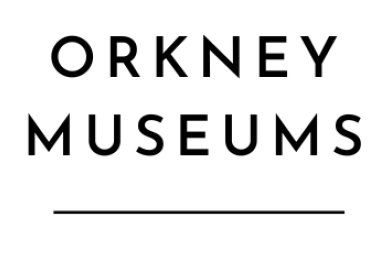The Scuttling of the German Fleet: 2019 Summer Exhibition at the Orkney Museum. Panel 3, Part 1. John Tulloch’s Account


John Tulloch’s Eyewitness Account
John Tulloch was a small boy living on the island of Cava in Scapa Flow when the German Interned Squadron arrived in 1918. His account of the ships in Scapa Flow and the scuttling is an amazing glimpse into the past. He would later work on the salvaging of the battlecruiser SMS Maltke before serving in Burma during World War II. He later moved to Africa and finally Australia. I am indebted to his daughter, Joyce Howard, who has always been very generous in letting us use her father’s account.
“…on a dull November day the German High Seas Fleet with Rear Admiral Ludwig von Reuter in command steamed into Scapa Flow through Hoxa Sound with the dull winter sunshine glinting on their grey hulls.
All the coal, oil and provision boats that had lain around Cava throughout the war had now been moved elsewhere and in their place the German High Seas Fleet dropped their anchors. Starting opposite the southwest tip of Cava they formed two lines right around the island to half way around the east side. To the west the SMS Seydlitz, Moltke, Von der Tann, Hindenburg, Derfflinger on the outside line and the SMS Nurnberg, Kaiser, Kaiserin, Prinz Regent Luitpold, Baden and Bayern on the inside line. After that they curved around the Calf of Cava until they reached the Barrel of Butter; a small reef with a navigation light on it, practically in the dead centre of Scapa Flow. The years have dimmed my memory as to which ship lay where on that side of the island.”

“My home stood near the shore on the west side, therefore the battleships became an everyday scene to me as the months went past, in fact some of them were so near to my home that on a calm day we could hear sailors talking or singing quite clearly. On a Sunday a brass band on the SMS Friedrich der Grosse used to play their German military tunes when the weather was good, so those great ships became a part of my childhood days, a source of jetsam that was picked up on my wandering around the shore of my island home.”

“Christmas came and the German crews, though far from home and virtually prisoners in their own ships seemed to enjoy themselves as best as they could. We could hear them larking around the decks of the SMS Nurnberg and Kaiser, the ships nearest to my home. They sang Christmas carols, but their songs sounded strange and guttural to our ears. When Christmas was over they must have thrown all their memories of it overboard because many weird things, strange to my young eyes, floated ashore on the western seas. Small Christmas trees and their decorations, acorns, coloured electric globes, Christmas cards and letters written in beautiful longhand.
Christmas was a celebration we paid little or no attention to in the Orkney Isles. As no trees of any significance grows except for Rowans, we had no Christmas trees far less decorations to put on them. In the First World War luxuries such as sweets and toys were practically none existent in our far northern home. If we pinned up our stockings at the end of the bed on the eve of Christmas our reward was perhaps a new pair of socks that Grandmother had knitted, or a piece of peat that my uncle had put in as a joke, therefore the jetsam that floated ashore from the interned German Fleet was a great source of wonderment to me.”


“In my wanderings around the beaches I had picked up a large number of model ships. These I had anchored in our duck pond that had become a miniature Scapa Flow. There were battleships, destroyers, coal boats, tankers, schooners, tugs, submarines and even seaplanes. Most of these ships were made to perfection and I have never seen anything to match them in a toy shop window since, in fact, they were masterpieces of craftsmanship that would have delighted the heart of any small boy. Let Santa Claus pander to the less fortunate children of the world, I had treasures no child’s parents could buy. Over and above that I had my own private cubbie hole in an old abandoned duck house that was bursting with treasures picked up from both British and German ships throughout the war. Caps and their name ribbons from practically every ship that ever entered the Flow, badges and gold braid of all descriptions, buttons, scarves, cords and numberless other things of all descriptions. Yes, verily I say unto thee, my treasure trove was greater than Ali Baba and his forty thieves.”

To make a donation to any of the museums please follow the link and support us.
